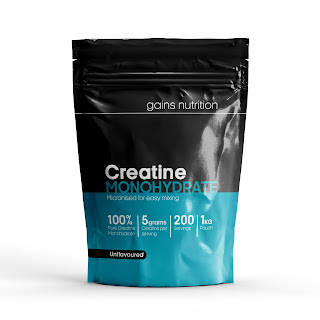Fuel Your Fitness Journey with Creatine Powder: Tips and Tricks
Embarking on a fitness journey requires dedication, consistency, and a well-structured plan. While diet and exercise are crucial components, many individuals turn to supplements to enhance their performance and results. One such supplement that has gained widespread popularity among athletes and fitness enthusiasts is creatine powder. In this comprehensive guide, we will delve into the world of creatine powder, exploring its benefits, usage tips, and debunking common myths. Whether you're a seasoned athlete or just starting your fitness journey, understanding how to effectively incorporate creatine powder can take your results to new heights.
Benefits of Creatine Powder
Creatine powder, specifically creatine monohydrate, is renowned for its ability to improve athletic performance and promote muscle growth. Here are some key benefits of incorporating creatine powder into your fitness regimen:
- Increased Strength and Power: One of the primary benefits of creatine powder is its ability to enhance strength and power output during high-intensity exercises. By replenishing phosphocreatine stores in the muscles, creatine helps in generating ATP (adenosine triphosphate), the energy currency of cells, more efficiently. This translates to improved performance in activities such as weightlifting, sprinting, and high-intensity interval training (HIIT).
Muscle Growth and Volume: Creatine supplementation has been shown to promote muscle growth, primarily by increasing water retention within muscle cells (cell volumization). This leads to a fuller, more "pumped" appearance, especially during and after workouts. Over time, consistent creatine usage, combined with resistance training, can contribute to significant gains in lean muscle mass.
Enhanced Endurance and Recovery: While creatine is often associated with short bursts of intense activity, it can also benefit endurance athletes. By supporting ATP regeneration and buffering lactic acid buildup, creatine can help delay fatigue during prolonged exercise sessions. Additionally, it aids in faster post-workout recovery by reducing muscle soreness and promoting muscle protein synthesis.
Cognitive Benefits: Beyond its physical performance benefits, creatine has shown potential cognitive benefits. Some studies suggest that creatine supplementation may improve cognitive function, memory, and overall brain health, making it beneficial for athletes and individuals with demanding mental tasks.
Usage Tips and Tricks
To reap the full benefits of creatine powder, it's essential to use it correctly. Here are some tips and tricks for effectively incorporating creatine into your fitness routine:
Choose Quality Products: When selecting creatine powder, opt for reputable brands that offer pure creatine monohydrate without unnecessary additives or fillers. Look for products that are third-party tested for quality and potency.
Loading and Maintenance Phase: Many creatine protocols recommend an initial loading phase followed by a maintenance phase. During the loading phase (typically 5-7 days), you consume a higher dose of creatine (around 20 grams per day) to saturate your muscles quickly. Afterward, you can switch to a lower maintenance dose (3-5 grams per day) to maintain elevated creatine levels.
Timing and Mixing: Creatine powder is best taken with a source of carbohydrates and/or protein to enhance absorption. Mixing it with a post-workout shake or juice can be an effective way to consume it. However, timing is not as critical as consistency. Taking creatine daily, whether before or after workouts, is key to seeing results.
Stay Hydrated : Creatine supplementation may increase water retention in muscles, so staying hydrated is crucial. Drink plenty of water throughout the day to support optimal hydration levels and overall health.
Cycle Creatine Intake: While creatine is generally safe for long-term use, some individuals choose to cycle it (e.g., using it for several weeks followed by a brief break). This approach can help prevent desensitisation of receptors and maintain responsiveness to creatine over time.
Debunking Myths and Misconceptions
Myth 1: Creatine Causes Kidney Damage Fact: Numerous studies have shown that creatine supplementation, when used responsibly by healthy individuals, does not cause kidney damage. It is safe for most people, including athletes and fitness enthusiasts.
Myth 2: Creatine is Only for Bodybuilders Fact: While creatine is popular among bodybuilders, it benefits a wide range of athletes and individuals pursuing fitness goals. From sprinters to endurance athletes, creatine can enhance performance across various disciplines.
Myth 3: Creatine Causes Weight Gain from Water Retention Fact: While creatine can lead to temporary water retention within muscles, this does not equate to fat gain. The increased water content contributes to muscle fullness and does not significantly impact overall body weight or body composition.
Conclusion


.jpg)
Comments
Post a Comment